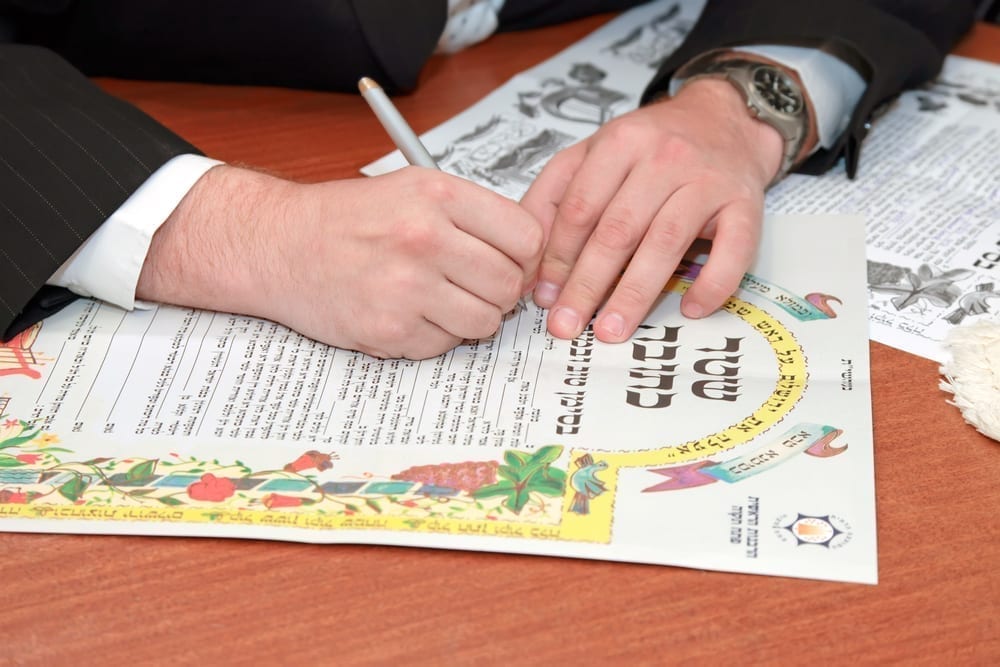I recently gave a shiur to a group of American businesswomen, managers of large companies, at a conference whose subject was, “The Power of the Jewish Woman.” “What do you think the power of the Jewish woman consists of?” I asked the audience. No one had an answer for me.
I then introduced them to our great-greatgrandmothers, the Jewish women in the times of galut Mitzrayim. We talked about how Pharaoh ordered the Jewish midwives to kill all the newborn boys and afterwards discovered that they hadn’t heeded his command. “Why didn’t you kill them?” he demanded of them angrily. What did Shifrah and Puah answer? “The Jewish women are not like the Egyptian women,” they explained. What was the difference? “B’terem tavo aleihen hameyaledet v’yaladu.” Even before we arrive to tend to them, they’ve already given birth. This beautiful answer encapsulates the fundamental power of the Jewish woman: She is never absorbed in her present pain. She always looks beyond it, to the joyful results that will follow.
The Jewish woman is one step ahead of the game, focusing on the outcome. In fact, that’s what Ivriyah means—ahead. While the Hebrew word for an Egyptian woman, “Mitzriyah,” is related to the word “tzirim,” contractions, the Ivriyah’s root is ibbur, fetus. While the Egyptian women focus on their pain, explained the midwives, our women set their minds on the future, which is why we cannot stop them from transcending their agony and giving birth.
Even in her most excruciating moments the Jewish woman is already absorbed in the happiness that will envelop her when she holds her newborn for the first time. I was amazed to observe this very phenomenon this week in my interactions with a very special Ivriyah: Iris, the mother of Eyal Yifrach, Hy”d. On one of the occasions that I came to visit, her sister said to me, “Yemima, you must tell her to go to sleep. She’s been sitting on that chair since the day the news broke. She hasn’t slept in a bed for three weeks.” When I asked Iris why she was torturing herself like that, this paradigm of an Ivriyah replied, “Before, I sat on a chair to wait for Eyal to come home. Now I sit and wait for Mashiach.” This exemplary Jewish woman doesn’t wallow in the pain of her contractions. She awaits one redemption after the next, already envisioning the baby in her arms. Even in the most excruciating circumstances she can see the crack of dawn far off in the distance, like our mothers of yesteryear. Right now we are all undergoing the contractions of the y’mei hameitzarim. As a nation, we are all in labor. Now is the time we should be imagining the fruits of our labors: the rebuilding of the Beit Hamikdash.
The Ari Hakadosh as well as the Zohar tell us that in these days we must imagine the days of Mashiach. Only a person who can see it in his mind’s eye, says the Gemara, will merit to witness the Bayit Shlishi. And if, G-d forbid, it doesn’t happen this year, such a person will at least merit to see a personal redemption in her own life, whether with regard to shalom bayit, zera shel kayama, or anything else she might yearn for in order to make her home a more beautiful place. “Kol hamitabel al Yerushalayim zocheh v’roeh b’simchatah.” He who mourns Jerusalem will merit to see its joy. On the words, “Kol tzofayich nasu kol… ayin b’ayin yiru b’shuv Hashem Tzion,” the Zohar comments that whoever visualizes the geulah in his imagination will eventually merit to see it in actuality.
A woman who finds the strength to envision the blessings beyond the contractions will be zochah to see geulah in her personal life. I’d like to share with you a fascinating thought that the Maharal of Prague offers in his sefer Netzach Yisrael (Chapter 36). We know that the chevlei Mashiach are likened to painful contractions, as one of the Sages in the Gemara already predicted when he said, “I want Mashiach to come, but I don’t want to experience the preceding labor.” “Why will the chevlei Mashiach be so agonizing?” asks the Maharal.
In his thought-provoking answer he cites a phenomenon we women can easily relate to: every change in life is accompanied by sadness. Why do many women feel a sense of anticlimax or even depression after giving birth? Shouldn’t they be overwhelmed solely with joy and gratitude? Why do kallos sometimes experience anxiety and the blues? That answer is that whenever there is change there is also sadness. Just consider the word “nasuy,” married, which is composed of the same letters as the word “shinuy,” change. And why are adolescents perpetually enveloped in a cloud of sullenness? Because they’re experiencing a radical change, even though one would think they would embrace their advancement into adulthood with excitement. The reason, the Maharal explains, is that every shinuy creates the reality of shnayim, duality. It suddenly breeds a “before” and an “after,” two different realities that are laid out before our eyes, inviting comparison. It is this duality that causes all the trouble. Think about it: Why is marriage so difficult to adjust to in modern times? Because many young women have been raised to think only of their independence, freedom and selfish desires. Years ago, girls were raised on dreams of motherhood. They looked forward to giving of themselves to their husbands and families.
Today, it’s all about what’s most comfortable for me. The objective is to be as pampered and unburdened as possible. For someone with this mindset, no wonder it is torturous to suddenly find oneself changing diapers and carrying the load of marriage and motherhood on one’s shoulders. She cannot make peace with her new reality. Even the concept of selflessness is constricting and stultifying. Because the contrast of her two realities is so stark, many of these women experience great anguish. How can we spare ourselves the pain that will accompany the change of chevlei Mashiach? Says the Maharal: “Start right now. Create only one reality in your mind.” If you begin to envision and prepare for the geulah now, when it finally arrives you’ll already be accustomed to that reality and the transition will be smooth. It won’t be a new phenomenon to you, one that invites the distress that duality engenders.
From this week’s parshah we learn that this is something that is not too difficult for women to do. After all, we are the ones who are blessed with the gift of wild imagination. (You know this is true when you suddenly realize your five-year-old son has been missing for less than three minutes…) Parshat Matot covers the concept of nedarim, vows. The Torah tells us that depending on her age and status, a woman’s neder can be nullified by either her father or husband. One might think that this implies that women are powerless, that our gender is being discriminated against and our words have no standing.
However, Rav Shamshon Refael Hirsch explains that this actually proves the opposite. When a woman makes a neder, the man is allowed to nullify it precisely because her words are taken seriously. Because a woman can be overcome by the roaring power of her imagination, and already sees the post-neder reality in her mind’s eye, her words are all the more potent and thus require the option of nullification. The Torah realizes how influential our imagination can be on our words, thus offering an opportunity for annulment should a change of mind occur. The days of bein hametzarim are an opportune time for us to use this tool of fertile imagination to prepare for the upcoming geulah. By envisioning that reality today, like the Ivriyot who preceded us, we will be spared the labor pains of the chevlei Mashiach and enjoy only happiness in the days to come.





